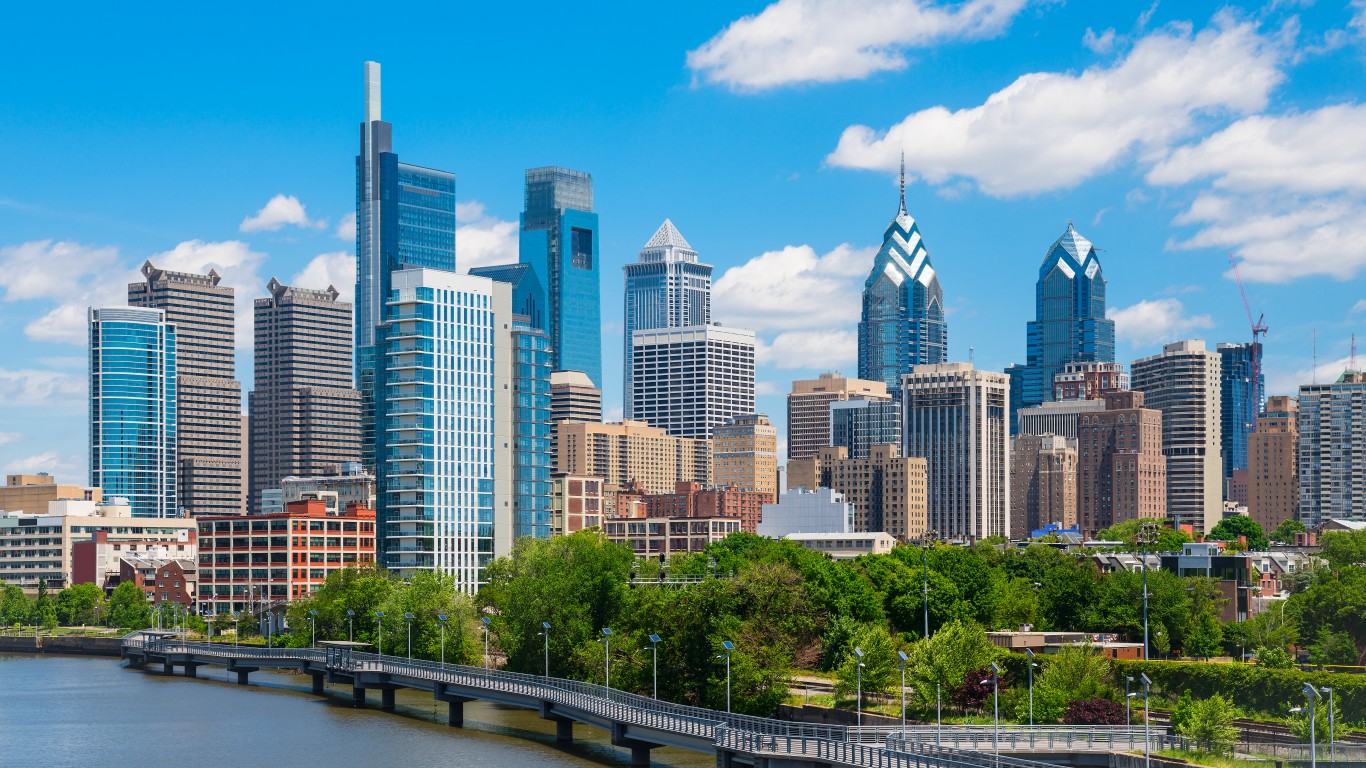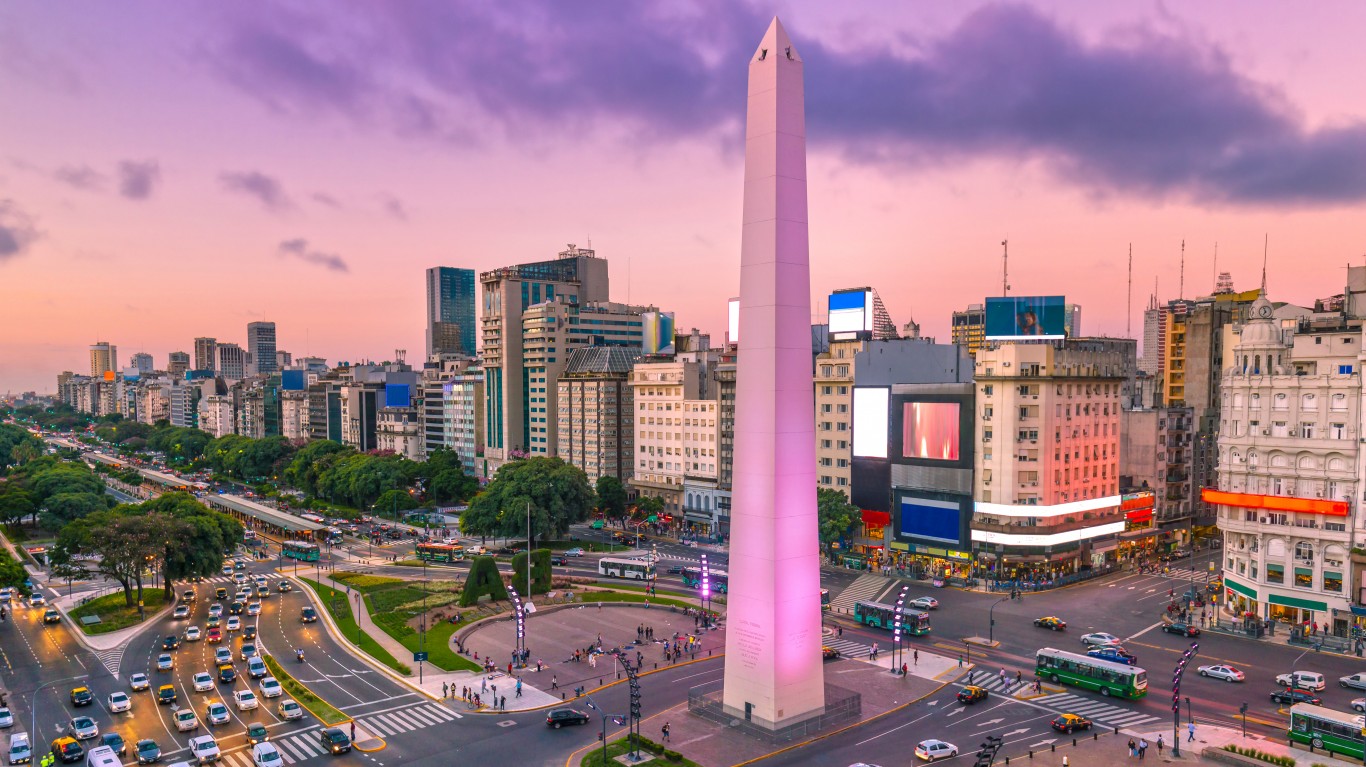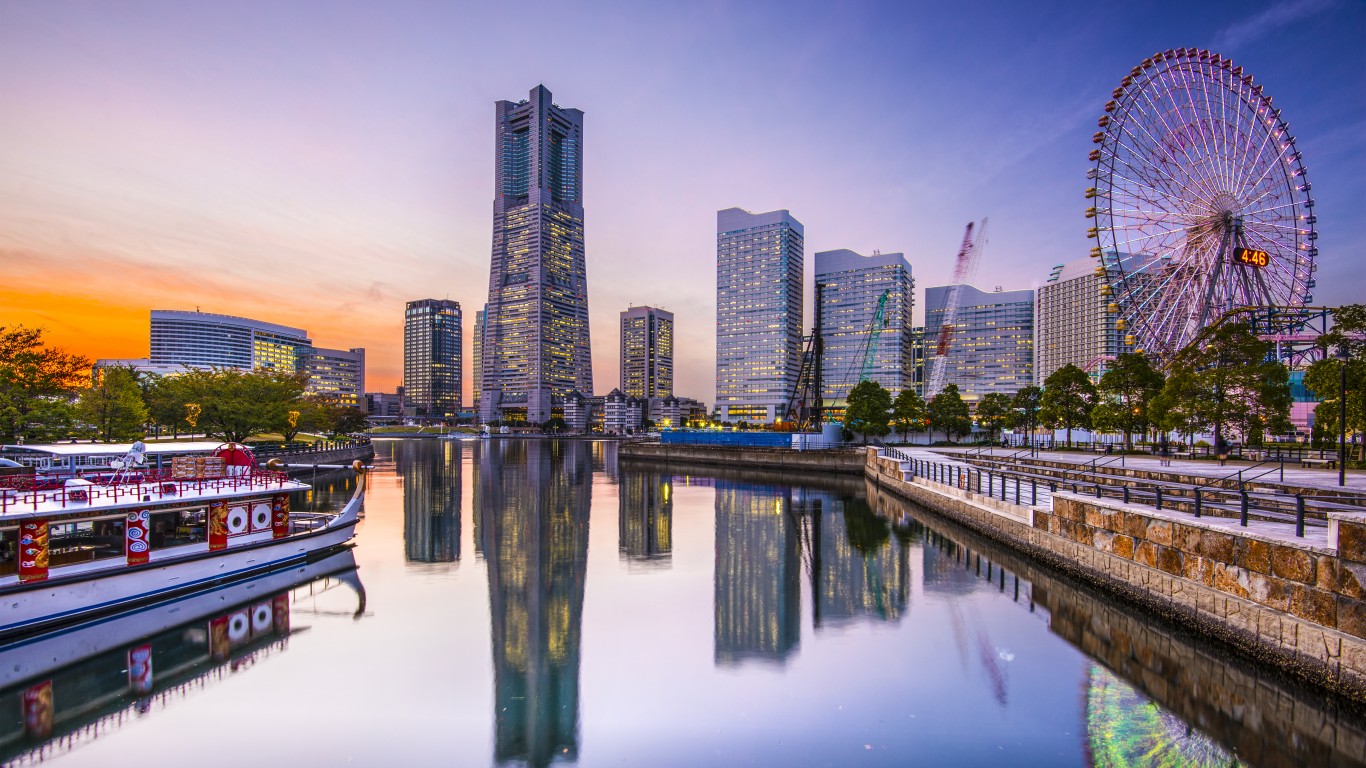
25. Philadelphia, Pennsylvania, USA
> Total emissions in 2012: 19.21 million tons of CO2 equivalent
> Transport, industrial, waste, and local power plants: 12.40 million tons of CO2 equivalent — #21 most in study
> Grid-supplied energy produced outside the city boundary: 6.82 million tons of CO2 equivalent — #25 most in study
> Population in 2012: 1.5 million
In January of this year, Philadelphia published its Climate Action Playbook committing to eliminating its contribution to climate change, primarily in three sectors: buildings and industry, transportation, and waste management. The first of these is responsible for 70% of the city’s emissions, prompting aggressive action. Under a new Building Efficiency Performance Policy, all non-residential buildings of over 50,000 will have to submit a certificate of high-energy or bring existing energy systems into good repair.

24. Buenos Aires, Argentina
> Total emissions in 2014: 19.67 million tons of CO2 equivalent
> Transport, industrial, waste, and local power plants: 15.56 million tons of CO2 equivalent — #18 most in study
> Grid-supplied energy produced outside the city boundary: 4.11 million tons of CO2 equivalent — #38 most in study
> Population in 2014: 3.0 million
Argentina has set emissions goals, but its policies are seen as insufficient to reach those goals: while investing in alternative energy, it continues to subsidize fossil fuels; while pursuing a policy to incentivize electric vehicles, the transportation sector remains responsible for the highest levels of emissions compared to other sectors; and while the government has passed a carbon tax, it is too low to affect a shift in energy use.

23. Rio de Janeiro, Brazil
> Total emissions in 2012: 20.27 million tons of CO2 equivalent
> Transport, industrial, waste, and local power plants: 16.17 million tons of CO2 equivalent — #15 most in study
> Grid-supplied energy produced outside the city boundary: 4.10 million tons of CO2 equivalent — #39 most in study
> Population in 2012: 5.5 million
Burdened by violence, inequality, low GDP, and drug trafficking, Rio is not in an ideal position to take on climate challenges, even as it faces ever more deadly heat waves, devastating storms, and sea level rise. Worsening the city and country’s climate status is their heavy reliance on coal and the rapid depletion of the rainforest, which otherwise could provide an inexpensive means of mitigating climate change.

22. Yokohama, Japan
> Total emissions in 2013: 21.95 million tons of CO2 equivalent
> Transport, industrial, waste, and local power plants: 12.57 million tons of CO2 equivalent — #20 most in study
> Grid-supplied energy produced outside the city boundary: 9.38 million tons of CO2 equivalent — #19 most in study
> Population in 2013: 3.6 million
Yokohama may not be on track to meet its aggressive climate goals, but its progress to date and its determination offer positive signs that it can succeed. Even before the worldwide goal- setting marathon of the last few years, the city had begun the hard work of reducing CO2 emissions in 2008 through energy conservation, raising public consciousness, and finding innovative ways to advance green technology.

21. Durban, South Africa
> Total emissions in 2014: 22.59 million tons of CO2 equivalent
> Transport, industrial, waste, and local power plants: 11.68 million tons of CO2 equivalent — #23 most in study
> Grid-supplied energy produced outside the city boundary: 10.91 million tons of CO2 equivalent — #15 most in study
> Population in 2014: 3.0 million
Climate related heat waves, floods, and droughts cannot be separated from the rest of Durban’s problems: poverty, widespread unemployment, and government corruption among them. Although the city has published bold plans for climate action, the public has not been involved, and the highly polluting petrochemical industry is an impediment to progress.

 24/7 Tempo
24/7 Tempo




